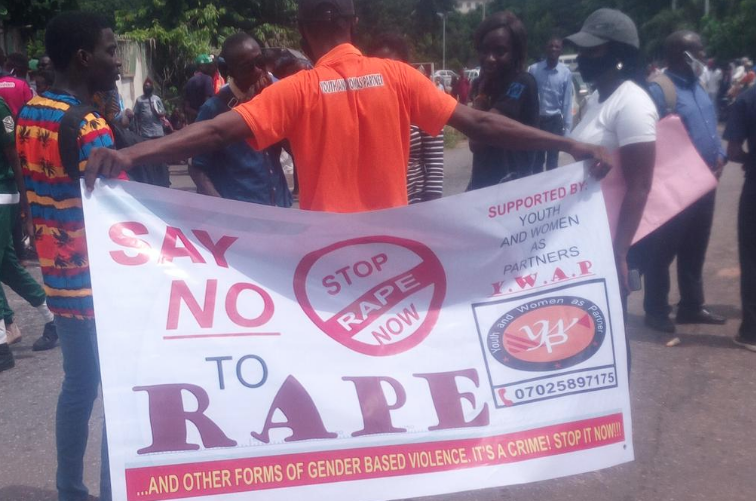The approval granted by the Kaduna state house of assembly on castration for rapists has generated varying reactions from rights activists.
According to the bill, which followed a decision by the assembly to amend the Kaduna state penal court law, 2017, persons found guilty of rape will face “total castration” as punishment.
TheCable had reported the development following the announcement by the assembly via a tweet on Thursday; the tweet was subsequently deleted, but the decision of the lawmakers was also posted by the majority leader of the assembly.
The country has witnessed a spike in the number of reported rape cases in the country in recent times, prompting discussions on stiffer punishments for offenders.
Advertisement
Nasir el-Rufai, governor of Kaduna, had in July frowned at the incessant cases of rape, stating that the justice system of the state will no longer grant bail to rapists.
However, while the bill passed by the Kaduna assembly to castrate sex offenders is seen as a welcome development by some right activists, others are of the view that it would achieve little, since there are laws recommending punishment for rapists.
Inibehe Effiong, human rights lawyer, told TheCable that the Kaduna house of assembly was only “playing to the gallery”.
Advertisement
“What do they seek to achieve? Rape is a serious matter and if the house feels that the subsisting punishment is not sufficient to deter culprits, they could have simply amended the existing laws by increasing the terms of imprisonment,” he said.
“I don’t see the bill as a good indication and willingness to tackle the scourge of rape. The factors that militate against the successful prosecution of rapists cannot be addressed by a sensational imposition of punishment by way of castration.
“By imposing a punishment of castration that the incidences of rape would reduce is not correct. It is just like the death sentence on kidnappers which almost every state house of assembly in the country has enacted. This has not had any significant impact on the cases of kidnapping in the country.”
Esther Uzomah, a gender rights activist, described the bill as a welcome development as it would go a long way in ensuring that there is a significant reduction in the number of rape cases in the state.
Advertisement
“I celebrate the interest of the governor and his efforts to curb the increase in rape and defilement of women and children,” she said.
“To serve as a deterrent to rapists, castration is welcomed. The current provisions in our laws are not adequate but it is only a level of discretion to the judge and in most cases, they choose the light form.
“The fear of castration, considering the male attachment to its biological appendage, would be a great deterrent to the crime.”
Asked what punishment could be meted out to female rapists, Uzomah said there is no existing record in criminal jurisprudence indicating that a woman raped a man, adding that in a situation where such happens, the equivalent of castration for the female is but a scientific question.
Advertisement
Another legal practitioner, Modibbo Bakari, who expressed reservations about the Kaduna lawmakers’ decision, said the problem is not the existing laws, but the lack of prosecution on the part of law enforcement agencies.
“It is the primary responsibility of the police to prosecute state offenders and bring them for trial and conviction if found guilty. So even if they pass a death sentence, provided there is no political will on the part of the prosecuting agencies, the law will remain redundant,” Bakori said.
Advertisement
“I don’t agree that castration is the solution because you are increasing to the number of disabled people in the society; we have been unable to cope with the existing ones.”
Advertisement
Add a comment






